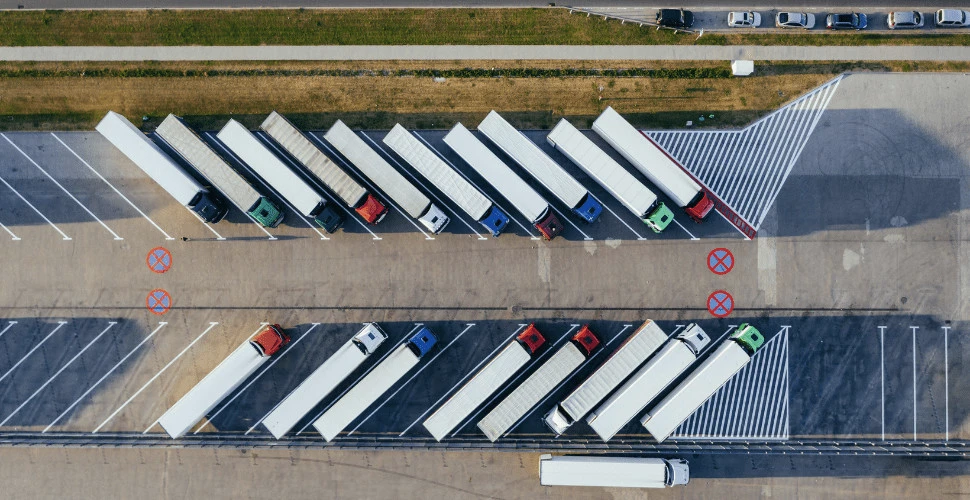Chung* was an orphan living in Vietnam, collecting and selling driftwood, snails and plastic bottles to survive, when he was approached. “I was around 15 to 16 years old. They came to me and asked if I’d like a job and said I could make a lot of money […] I did what I was told,” he says. He was taken to Europe where he now lives in hiding, constantly in fear of being found by his traffickers.
Chung is one of the many Vietnamese children who have been trafficked thousands of miles by criminal networks into conditions that experts describe as modern slavery. A documentary from Al Jazeera’s 101 East investigates how this heinous crime occurs.
Treacherous journeys
Chung cannot be sure of the route he was taken on, but he believes they crossed Russia, then the Balkan countries, before arriving in Warsaw.
Along the route, Chung’s group were held in abandoned warehouses, sometimes for weeks at a time. “We weren’t allowed to go outside. […] Day and night, everyone had to stay inside. I didn’t know where I was,” he explains. Any attempts to go outside or run away would be met with violence, he was told.
Germany was the final destination, although his group never made it. As they approached the Polish-German border, the driver lost control of the minivan in which Chung and others were traveling. People were seriously injured.
He tells filmmakers:
“It still really scares me now. The man next to me hit his head on something. There was blood all over his face. It still frightens me now.”
The accident resulted in the arrest of the driver and all passengers – eight of whom were minors. The contents and data of the drivers’ phones revealed that over 100 similar operations had taken place in the previous eight months.
Missing children
When apprehended, children and teenagers like Chung are taken to child protection facilities, from which they usually go missing soon after arrival.
An anonymous source from a center near the German-Polish border told 101 East: “Frequently, they disappear from this facility within one to two hours.” Staff file a missing person’s report with the police, “but usually nothing happens.”
But Vietnamese minors are not just disappearing in Germany. Similar patterns are found across Europe. Indeed, 97% of Vietnamese minors registered in the Netherlands have disappeared.
Journalist Sanne Terlingen has investigated the disappearances in the Netherlands. She explains that although the windows are locked in the shelter and a night guard is placed outside, children are still escaping. They use knives from the kitchen to open the windows or spray perfume on the fire alarms to open the doors.
The anonymous caseworker confirms that the methods used in Germany are the same. He told 101 East:
“It looks as if these minors have precise instructions on what they have to do […] They know where they have to go. There are meeting points in place. Some of them are picked up by cars directly outside our facilities.”
Debt used to manipulate and exploit children
Although it may appear that these children are escaping voluntarily, the reality is not that simple. Terlingen explains that they run away from child protection services because “the pressure on them is so high from their families because they have to pay back these debts.”
Smugglers charge between USD 10,000 and 40,000 to transport someone from Vietnam to Germany, according to a report by ECPAT UK, Pacific Links Foundation and Anti-Slavery International.
This amount is far higher than families can afford, meaning that children have to work off the remaining debt. If they refuse to work, they face violence.
Physical abuse is also used to put pressure on families back home in Vietnam to pay. Markus Pfau, who leads a police department against organized crime in Germany, spoke of cases in which people would be held in an apartment and abused until their family paid the criminal network.
Ultimately, these gangs are leveraging debt and violence to exploit their victims and turn a profit at their expense.
*Name has been changed to protect his identity.







Freedom United is interested in hearing from our community and welcomes relevant, informed comments, advice, and insights that advance the conversation around our campaigns and advocacy. We value inclusivity and respect within our community. To be approved, your comments should be civil.
Hello Paloma, Thanks for your feedback. The article refers to the minors in child protection service facilities. Case workers believe that the children return to criminal networks to pay off their debts as the article explains. This article is a short summary of some of the key points discussed in a documentary on Al Jazeera’s 101 East which you can view in full here for more information.
Where are 97 percent of Vietnamese children in the Netherlands disappearing/escaping to and where are they held that they have a guard. This article needs more facts.